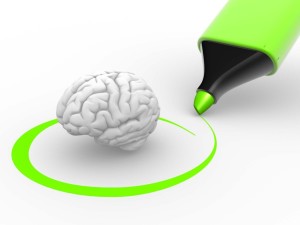The Four Laws of Learning
- Posted by Joe McCullough
- on May, 29, 2013
- in Accelerated Learning, Brain-Based Learning, Successful Study Habits
- Blog 4 Comments.
Since final exams (or Final Celebrations as I like to call them) are next week, it seems like a perfect time for a brief post on learning and the factors that affect our ability to both learn and remember.
As you study for exams, you will probably notice that you have learned some subjects much better than others. Why is that? What determines how well you learn a new topic or skill? Why do some subjects just seem to stick better than others? How can you increase the odds that you will remember what you have learned?
A couple of years ago, I had the wonderful opportunity to work with a brilliant educator named John Le Tellier. John developed the “Four Laws of Learning”, a set of simple principles for learning based upon the latest brain research. Presented below is my interpretation of John’s Four Laws of Learning and some suggestions for incorporating them into your studying.
The Law of Attention
Multi-tasking does not exist, especially when it comes to learning. In order to learn something new, your full attention must be focused upon it. Put simply, there can be no learning without attention. The greater your attention, the greater your potential both for learning and for recall.
The Law of Association
We learn new material by associating it with old material. We create meaning and make sense of new information by associating it with what we already know. The more associations you can make, the more likely you will be to learn and retain the information.
The Law of Reinforcement
Learning does us no good if we can not remember what we have learned. In order to create strong memories, we need to refire the same neural networks (collections of neurons that are connected together) that were formed during the learning process. We do this by reviewing what we have learned. This reinforces the learning and increases our ability to recall the information.
The Law of Emotion
Our emotions can have a dramatic effect on both our ability to learn and our ability to recall what we have learned. Emotions are like post-it notes that tell our brain to pay attention. When we pay attention and focus on something, we tend to remember it. Attaching positive emotions such as joy and happiness to the learning process can greatly enhance our ability to learn.
 As a student, you can use these four laws of learning to your advantage. Here are four quick suggestions for studying – one for each law:
As a student, you can use these four laws of learning to your advantage. Here are four quick suggestions for studying – one for each law:
1) Devote your full attention to what you are studying. Do not attempt to multi-task! Silence your cell phone, close Facebook, do not check email, and really focus on studying for ~45 minutes straight. (Then take a 5-10 minute break and repeat.)
2) As you study, connect what you are learning to what you already know. Even better, connect what you are learning to similar examples from everyday life. In addition, think about how the entire semester’s worth of information fits together, how everything is connected.
3) Do not cram! Cramming is not an effective learning strategy, especially if you hope to remember the information at any point in the future. Spread out your learning and study a little bit everyday. It is way more effective and much less stressful.
4) Before you sit down to study, spend a few minutes getting yourself into a resourceful and positive state of mind. The optimal state to be in is called alpha state. Click here for a process you can use to quickly shift into alpha state.
Good luck with your Final Celebrations!
Comments & Responses
Share…
Recent Posts
- How To Double Your Reading Speed
- The 21-Day No-Complaint Experiment
- Brain Rules for Students and Educators
- Make Your Message Memorable – Five Brain Facts All Presenters Should Know
- 3 Important Memory Principles to Help You Remember Names
Categories
- Accelerated Learning
- Accelerated Teaching
- Brain-Based Learning
- Brain-Based Teaching
- Life Skills
- Personal Development
- Successful Study Habits
Thanks, Joe! This was really helpful. I like the idea of studying for 45 minutes and taking a break. I’m going to try this today.
Informal learning occurs through the experience of day-to-day situations (for example, one would learn to look ahead while walking because of the danger inherent in not paying attention to where one is going). It is learning from life, during a meal at table with parents, play , exploring, etc.
What children remember is more often than not used as the yardstick to judge what they have learned. If they perform poorly on a test because they can’t retrieve what they know from long-term memory in order to answer test questions, the assumption usually is that learning has not taken place.
The problem of forgetting might not torment us so much if we could only convince ourselves that remembering isn’t important. Perhaps the things we learn — words, dates, formulas, historical and biographical details — don’t really matter. Facts can be looked up. That’s what the Internet is for. When it comes to learning, what really matters is how things fit together. We master the stories, the schemas, the frameworks, the paradigms; we rehearse the lingo; we swim in the episteme.